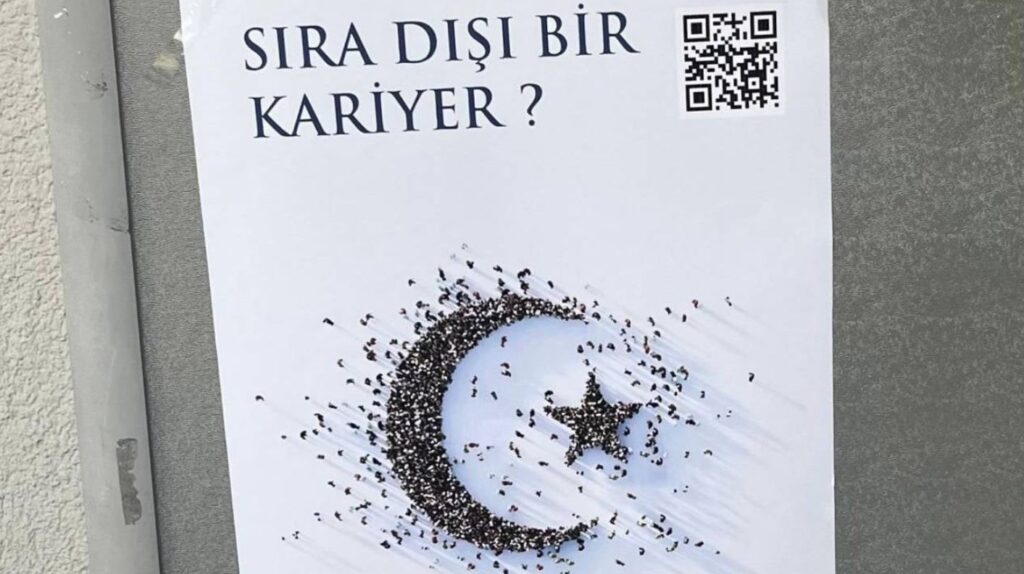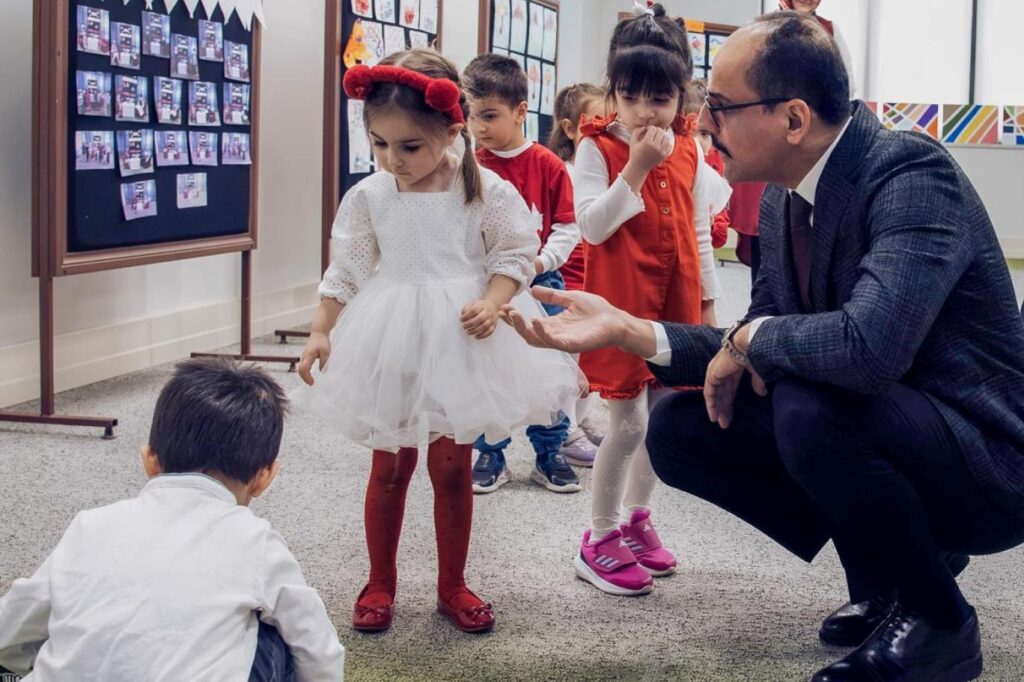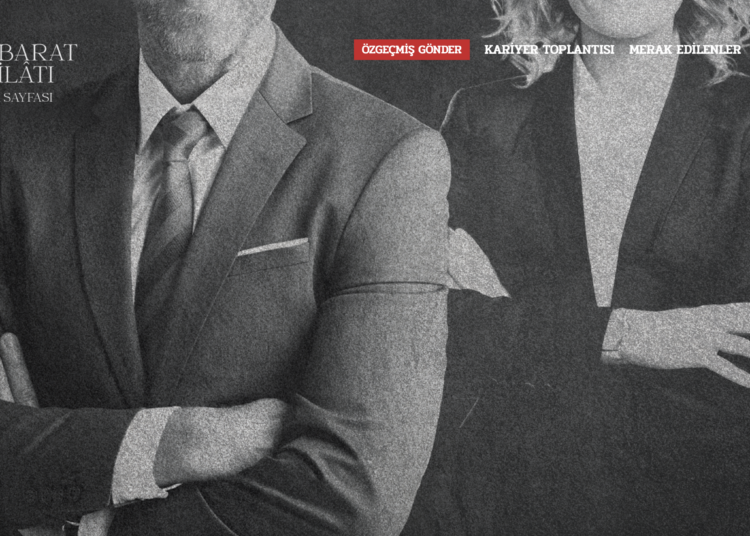Levent Kenez/Stockholm
Turkey’s National Intelligence Organization (MİT) is reaching out to young people by posting flyers at universities, offering career opportunities. They are also inviting high-achieving students to job interviews via SMS.
MİT’s “Extraordinary Career” posters, which first appeared at Boğaziçi University, Bilkent University and most recently at Galatasaray University, feature a QR code directing students to MİT’s career page. Students are presented with various career options, including intelligence specialist, engineer, language expert, technician, UAV operator and security officer on the page. There is no logo or text related to MİT on the posters.
Nordic Monitor has learned that the posters were part of “career days” organized on university campuses, where companies and government institutions present job opportunities. Additionally, Turkish media reported that students with high GPAs were invited to job interviews via SMS.
The pro-Kurdish Peoples’ Equality and Democracy Party (DEM) on Monday submitted a written inquiry to Vice President Cevdet Yılmaz, asking how MİT obtained the personal information of graduates and university students who had not previously applied for any jobs and invited them to interviews through SMS. The inquiry also criticized MİT’s efforts to recruit intelligence officers or other personnel through posters without a logo or text indicating the employer at universities, which are supposed to be institutions of higher learning, stating that this approach is unacceptable.
The written inquiry, submitted by DEM party members Beritan Güneş, Kezban Konukçu and Yılmaz Hun, also demanded clarification on whether the students’ private information was shared with MİT by university administrations. If so, the inquiry seeks an explanation of the nature of the partnership between the university administrations and MİT.

Additionally, the deputies highlighted that MİT officials who met with students during career days at universities promised high monthly salaries, mentioning figures as high as 150,000 lira (around $4,650). They questioned Vice President Yılmaz on whether these salaries, which are unusually high by Turkish standards for entry-level positions, are genuine or if they are creating a false motivation for students.
No doubt, MİT is President Recep Tayyip Erdogan’s most highly prioritized state institution. Erdogan, who monitors other state institutions and opponents through MİT, appointed a relative and one of his most trusted advisors, İbrahim Kalın, to lead the institution after being re-elected on May 28, 2023. With Kalın taking office, MİT adopted a more active policy, especially on social media. Enhancing channels of communication and public relations activities via its website, MİT added sections to provide answers to frequently asked questions. Participating in university career days for the first time, MİT recently published sample texts on crypto communication on its website. There are several series and films on TV stations funded by the government that promote MİT.

In April MİT asked elementary school students and preschoolers to put the words security, intelligence and secret agent into pictures or letters as part of the celebration of April 23, known as Children’s Day in Turkey. MİT, which published the letters and drawings on its website, said it aimed to encourage children to use their imagination. However, some educators and psychologists found MİT’s initiative harmful to children’s mental well-being. In one published letter a young girl wrote, “After I fall asleep, I secretly follow my mom like a secret agent. I watch what she does, what she eats and who she talks to after she puts me to bed.”
The government granted a staggering 125.7 percent increase in the 2024 budget for MİT, allocating 17.4 billion Turkish lira ($540 million) to MİT in the central budget, a significant increase from the 2023 budget of TL 7.7 billion ($240 million). The budget was rubber-stamped by parliament without modification in late December. Since 2020 the government has ceased publishing MİT’s spending and asset reports — which were audited annually by the Court of Accounts (Sayıştay) on behalf of the legislature, which has oversight power to review government expenditures — as a means of concealing MİT’s financial resources and assets.
The total manpower of MİT is not officially disclosed, but estimates suggest it to be around 20,000, more than double the figure from a decade ago. Additionally, when factoring in a widespread network of assets and informants both in Turkey and abroad, the agency is believed to have engaged well over 50,000 individuals in various capacities.












